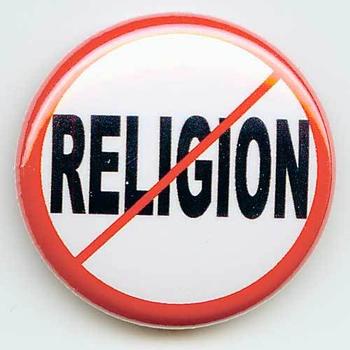Recently I asked “Is Christianity a religion?”
And, wow, did I get a bunch of responses.
So I only thought it fair to share what I think…and it will take a couple posts—so be on the look out, or subscribe on the sidebar so you don’t miss anything….right. over. there. on. the. right. sidebar.
Basically, I was raised with the “No, Christianity ISN’T a religion” answer, so I’m going to start there. The next post will be the “Yes, Christianity IS a religion” answer (with responses).
1) Christianity is a relationship, they say.
Christianity is not a religion. It is a relationship.
It is a personal relationship with Jesus. Or with God. Or with the Trinity—Father, Son, and Holy Spirit.
This relationship, it is claimed, is nothing like other religions.
2) Christianity is all about grace, they say.
This relationship is not earned. It is received.
The mark of religion is that we do it FOR GOD.
But Christianity is all about what God has done FOR US.
Instead of God—or the gods, spirits, ancestors—responding to us, we are responding to God.
A theological claim that we are worshipping the one true God, and not trying to earn our salvation.
3) Christianity is God-given, they say.
Religion, and all the religions we see, are human made attempts to understand and explain God.
But Christianity is given to us by God.
Religion is humanity reaching up to God.
Christianity is God reaching down to humanity.
This post and the next 3 on “Christianity and Religion” is part of Grassroots Christianity: Growing Faith for Everyday People.
Yes, but…
…this idea that Christianity is not a religion can be taken too far, distorting Christianity in the process.
1) Regarding “being a relationship”, I would definitely affirm this (to an extent). The revolution of Christianity within the world of Roman paganism was that the high God of creation actually cared—even loved (agape)—humanity so much that God, the Son, came down to do something about our miserable existence.
And our call to “believe in” Jesus (see the Gospel of John) rather than just “believe about” certain doctrines is important.
However, three things must be said.
First, during the Reformation and later evangelicalism, this “personal relationship” was used was a weapon against Catholic “tradition” and an Enlightenment emphasis on “cognitive beliefs”.
This has ended up cutting the “relationship” view off from the history of the church and from the life of the mind (with disastrous results).
Second, this “personal relationship” view has created an overly individualistic understanding of Christianity—of a “me and Jesus” kind of faith that excludes the church (also which is disastrous).
Third, the true meaning of “faith” has little to do with the ideas in my head. Faith is really about who or what we are aligned to or with. It is all about allegiance. So faith, if understood properly, already commits us to a “personal relationship” with Jesus, and so much more.
2) Regarding “being focused on grace”, this also is true.
But that doesn’t mean nothing is expected of us, that we don’t do anything. We are in the family because of God’s grace (Hallelujah). But everyone in the family is supposed to live a certainly way (“be holy as I am holy” (Lev. 19:1; 1 Peter1:15-16).
Certainly the work we do doesn’t earn us salvation. But our lives should reflection the salvation we have received (just as James 1:27 reminds us, “Religion that God our Father accepts as pure and faultless is this: to look after orphans and widows in their distress and to keep oneself from being polluted by the world.”)
3) Regarding “being given from God”, this is also true. God has done something (and is doing something). God has come down. God is at work in the world. This is all true.
But too often this is contrasted with “man-made” religion to the exclusion of the human aspect of Christianity.
But this is a mistake.
- Jesus was fully God and fully human.
- The Bible is given to us as the word of God through the words of humans (reflecting the time and place they were written).
- Faith (noun) is a gift humanity receives FROM GOD and faith (verb) is a way for humanity to live FOR GOD.
Too often this view ignores or wishes away aspects of Christianity that are all too human (like rituals, traditions, authority structures).
So if we are going to emphasize that Christianity is “God-given” then we also need to emphasize that it is “God-given” in “human-form”.
I’ll just drop a little Philippians 2:6-8 concerning Jesus (fully God / fully human) (emphasis added).
6 Who, being in very nature God,
did not consider equality with God something to be used to his own advantage;
7 rather, he made himself nothing
by taking the very nature of a servant,
being made in human likeness.
8 And being found in appearance as a man,
he humbled himself
by becoming obedient to death—
even death on a cross!
Conclusion:
So we should emphasize a living relationship with God. But we shouldn’t do this be trying to maximize a contrast with so-called “religion.”
This post and the next 3 on “Christianity and Religion” is part of Grassroots Christianity: Growing Faith for Everyday People.


